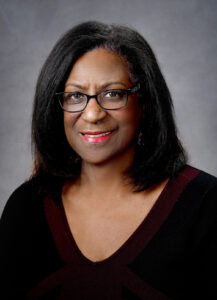After a cancer diagnosis, heart health is probably not the first thing on a patient’s mind. However, many existing and emerging cancer therapies can significantly affect cardiovascular health during treatment and beyond.
At MD Anderson Cancer Center at Cooper, the goal of our Cardio-Oncology Program is to prevent, monitor, and treat cardiovascular disease to ensure long-term health for both patients undergoing cancer treatment and survivors. The team of expert cardiologists and oncologists at MD Anderson at Cooper takes a multidisciplinary approach to provide comprehensive cardiovascular care to patients with cancer who have, or are at risk for, heart disease.
Some types of chemotherapy, radiation, immunotherapy, and other treatments can weaken the heart muscle and blood vessels, increasing the risk of heart disease days, weeks, months, or even years after cancer treatment. The most common heart conditions that may be caused by some cancer treatments are congestive heart failure, inflammation of the heart muscle (pericarditis), and coronary artery disease. Other, less common heart problems include low blood pressure, high blood pressure, abnormal heart rhythm, and heart valve disease.
Before a patient starts treatment for cancer, MD Anderson at Cooper oncologists and cardiologists work together to identify any chronic conditions that may impact the patient’s chemotherapy, immunotherapy, or radiation treatment plan. This information is used to develop a plan to determine the best treatment for each patient. Once cancer treatment begins, the cardio-oncology team monitors how certain treatments may be affecting the patient’s heart and makes any necessary adjustments.
Through the Cardio-Oncology Program, patients at MD Anderson at Cooper have access to comprehensive cardiac services, including outpatient clinics, inpatient services, echocardiography, electrophysiology, interventional cardiology, cardiac MRI, and nuclear studies. Additionally, after treatment is completed, each patient is given a survivorship plan to monitor long-term risks because some cardiac effects could appear years after treatment.
Cardio-oncologists are a vital part of cancer care and offer valuable guidance that allows cancer and cardiovascular diseases to be treated simultaneously and safely. The cardio-oncologists at MD Anderson at Cooper are here to protect your heart throughout your cancer treatment and beyond.
Joanne Mazzarelli, MD, FACC is a Clinical Cardiologist and Cardio-Oncologist at Cooper University Health Care as well as Co-Director of the Cardio-Oncology Program with MD Anderson Cancer Center at Cooper. Maritza Cotto, MD, FACC, FASE is a Clinical Cardiologist, Cardio-Oncologist, and Director of Echocardiography with Cooper University Health Care, as well as Co-Director of the Cardio-Oncology Program with MD Anderson Cancer Center at Cooper. For more information about the Cardio-Oncology Program at MD Anderson at Cooper, click here.


